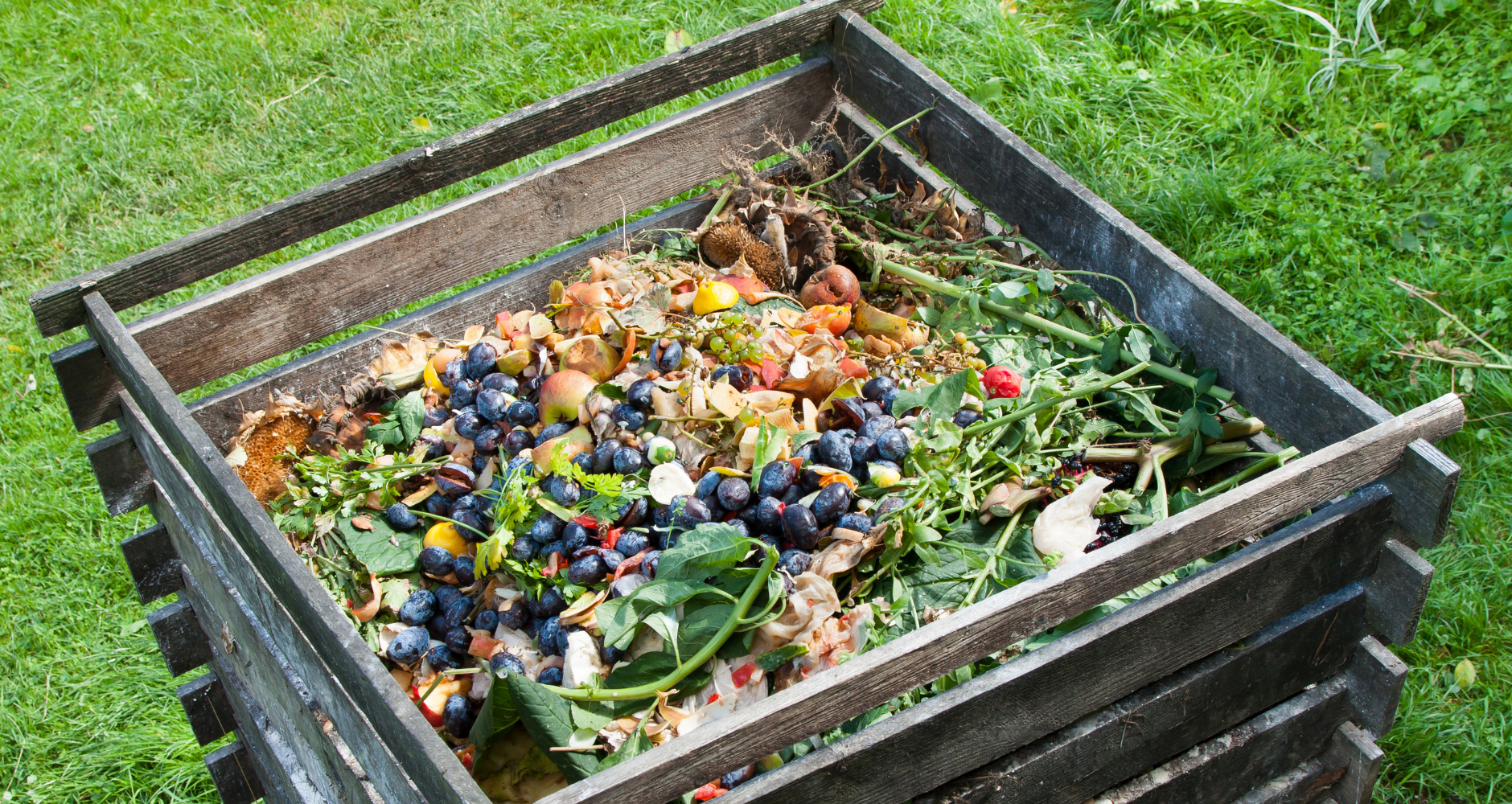Home composting – a circular journey
Composting is the natural process that turns organic waste — such as food and garden waste — back into useful materials. It’s endlessly circular, like the lifecycle of nature itself. Simply take your waste, turn it into a new material, and use it to boost your garden.
Some benefits of home composting are:
- It reduces waste in landfill
- It enriches the soil with nutrients
- It stores carbon
- It encourages biodiversity
- It’s simple and affordable
- It can be a fun outdoor activity

There’s no “one-size fits all” for composting – it depends on your situation, whether you have a small or large garden, an allotment, or a nearby community composting scheme, anyone can get involved in a way that suits them. Compost bins also come in all shapes and sizes, you can build your own, or use a Bokashi bin if you have no outside space. More specialist bins are even available for composting cooked food waste and meat.
All you need to do is provide the right ingredients and let nature do the rest.
Getting the right ingredientsIt’s amazing what you can compost – it’s not just food and garden waste. Pet and human hair, nail clippings, and even urine can be added to a compost bin! Once you start adding all you can, you’ll quickly see a decrease in the amount you’re throwing away elsewhere.
But make sure you’re getting the right balance of ingredients for your bin. Aim for a 50:50 mix of ‘green’ nitrogen-rich ingredients (e.g. grass cuttings, fruit and vegetable peelings) and ‘brown’ carbon-rich ingredients (e.g. egg boxes, newspapers, woody prunings).

No one likes to leave food waste lying around the house, so make sure you pop out to your bin regularly. It’s a great way to spend some time away from screens and distractions, and to make the most of being outside. This is also great for your mental health and wellbeing.
If you’re adding newspaper, take the time to shred it and reflect on how one day’s news will feed your bin over the coming months.
Whilst turning your compost to add air, marvel at all the different types of creatures helping turn your waste into something useful. And it’s not just the millions of micro-organisms - plenty of other creatures will frequent your bin. A highlight for me has been finding a slow worm soaking up the warmth from one of my bins.
Involve the familyComposting can be a great way for children to learn about the wonders of nature and the environment. By collecting items to compost, they can learn about the different types of materials, how they break down, and all the insects and micro-organisms that are part of the process. Who doesn’t love a good grubby outdoor bug hunt?
If you want to introduce the basics of composting to young children to composting, get some help from Peppa Pig!

The compost you make can be used in your garden as a mulch, or as part of a potting mix for houseplants. It improves soil structure and water retention, feeds plants and other vital soil organisms, and helps control diseases too.
It can also save you money by not needing to buy horticultural grade compost, but don’t worry if yours looks a bit different. You can sieve it and return larger items back to the bin. You could use as a mulch around shrubs, dig it in or even bury it!
If you’ve been inspired to give home composting a go, make sure to check out the Love Essex series of handy videos to help get you started. Good luck and enjoy!


